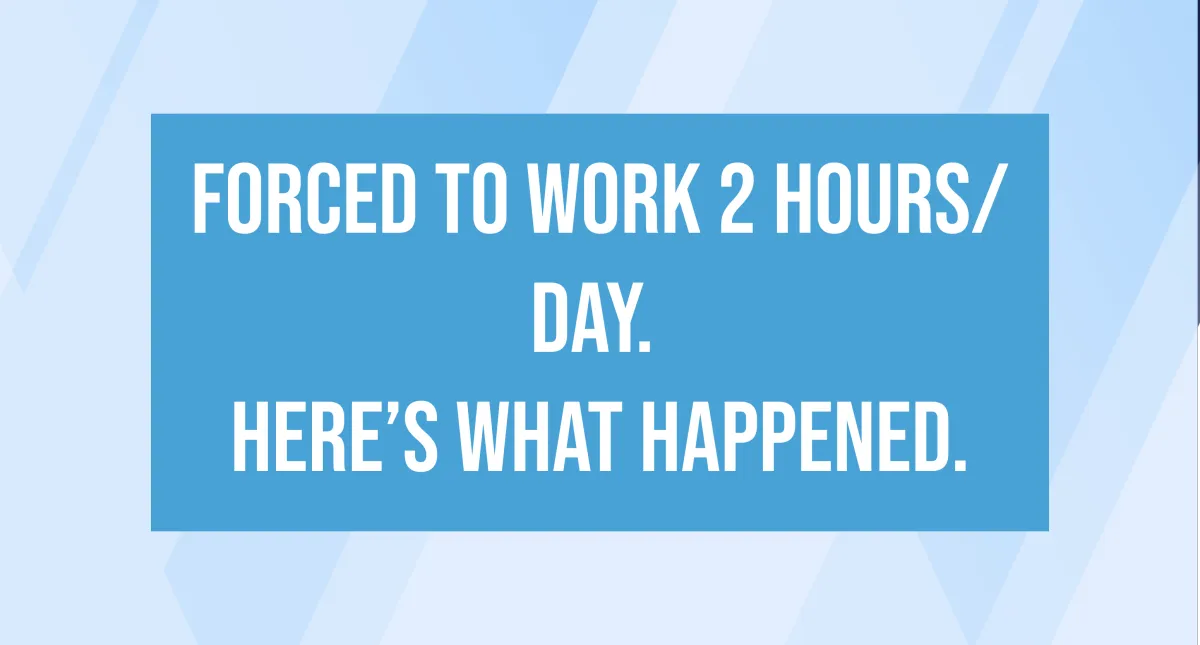
Forced to work 2 hours/day. Here’s what happened.
New: Listen to this newsletter on podcast.
A few weeks ago, I took my family to Europe—Spain, Italy, and France.

It wasn’t a “work vacation.” It was a vacation. And for most of it, I didn’t have reliable Wi-Fi, a predictable schedule, or more than 1–2 hours per day to plug into the business.
If you’ve been around here long enough, you know that while I love Tim Ferriss and lifestyle design, if you look at my schedule, I’m not a four-hour workweek kind of guy.
I put in a lot of hours because I believe if you want to build something meaningful and compress your timeline, you’re going to have to work your ass off.
But here’s what surprised me:
Being (temporarily) forced to work less made me a better CEO.
Constraint = Clarity
When you only have 1–2 hours a day to work, your priorities get real clear, real fast.
I couldn’t default to “just checking Slack” or “catching up on emails” or tinkering with backend systems that didn’t need my attention.
There was no time for that.
So, I stopped reacting to noise and started filtering for signal. I focused only on what would actually move the business forward—not what made me feel productive.
This wasn’t a productivity hack.
It was survival.
And the impact?
It reshaped the way I think about time, leadership, and leverage.
Parkinson’s Law, in Real Time
There’s a concept called Parkinson’s Law that says:
Work expands to fill the time available for its completion.
This trip forced me to flip that idea on its head. With only two hours a day, my work contracted—and got sharper.
No fluff. No filler. Just high-leverage execution.
When Time Shrinks, So Does Your Grip
Here’s another lesson that hit hard:
The more time I had, the more I clung to tasks that should’ve been delegated.
But when the calendar shrunk, I had no choice but to let go.
I empowered my team to take more ownership. I focused on coaching and reviewing instead of controlling and doing.
And what happened?
They made faster decisions
They executed without bottlenecks
They gained confidence—and so did I
Turns out, your level of micromanagement is often in direct proportion to how much time you have to micromanage.
From 2 Hours Back to 12 (With a New Filter)
Now that I’m home and my calendar is full again—8, 10, 12-hour days—here’s the best part:
I’ve kept the filter. But now I’ve added back the firepower.
With clarity on what truly moves the business forward, I’m using my full workday to double down on the highest-impact activities.
The two-hour constraint didn’t just change how I work.
It changed how I think about work.
And that’s been the turbocharger.
The 2-Hour Thought Experiment
If you only had 2 hours a day to work, what would you stop doing?
What would you double down on?
And maybe more importantly…
What would break?
What would thrive?
Your answers might point to where you’re over-involved, under-leveraged, or holding onto tasks that no longer belong to you.
Final Thought
You don’t need to fly across the world to run this experiment.
Just compress your calendar for a few days.
Step back, narrow your window, and see what surfaces.
Sometimes the best way to move forward is to step away.
(Though I do recommend the pasta in Rome while you're at it.)
Hope it helps.
Adios,
Ray
